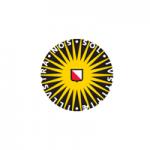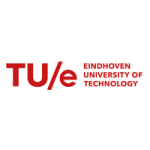项目介绍
Utrecht University invites applications for a PhD position on Phase-Out in Science as a Lever for Sustainability Transformations. In this project, you will investigate how science, often perceived as a neutral force, is being challenged to address environmental concerns, technological risks, and societal inequalities. By examining radical transformative initiatives such as moratoria, bans, and boycotts on specific research practices, this project seeks to understand their dynamics, ethical implications, and broader impacts on academic and societal systems.
Your job
In an increasingly uncertain world – politically, technologically, and ecologically – the role of science is increasingly debated. Long regarded a neutral bastion of progress, scientific practice was always thought to work best if kept separately from political concerns. However, many scholars now problematise this idea, arguing that science – at least partially – contributes to societies’ failure to address environmental concerns as well as reproducing inequalities and technological risks. The image of a ‘neutral science’ is increasingly debated. Science itself is becoming politicised.
One way in which this politicisation takes place is through the emergence of radical transformative initiatives that advocate restricting or even ending particular research practices via governance proposals such as moratoria, bans, or boycotts. These initiatives focus for instance on the phase out of certain forms of knowledge production, technoscientific solutions, and collaborative arrangements. Examples include cutting financial ties with fossil fuel companies or restricting research deemed to be problematic such as certain forms of climate manipulation. Such calls for the politicisation of scientific practices are highly controversial, as many view them as a threat to academic freedom – and at times, to the principles of the Enlightenment or democracy. Nonetheless, a thorough empirical evaluation of the nature, dynamics and impacts of these initiatives to phase-out scientific practices as well as the multiplicity of values and expectations underlying them is still missing.
Guided by supervisors Dr Jarno Hoekman external link and Dr Jeroen Oomen external link, this project will develop that empirical evaluation of phase-out in science systems. As a PhD candidate you will be studying both the visions and (expected) impacts of such initiatives, as well as their controversial nature and underlying moral and value-based struggles. As an in-road to studying phase-out the project will particularly focus on radical transformative initiatives that call for moratoria, bans and boycotts on research practices in the interdisciplinary realm of the sustainability sciences. While initiatives in this domain have become more prominent and visible (e.g. relating to geoengineering, the use of animals in research) studies of their dynamics, politics and impacts, as well as the underlying moral and value-based struggles and trade-offs of those involved are limited so far. This is surprising, as these calls for the phase-out of particular forms of scientific practice concern both a struggle over the future of the academic system, and a struggle over what is considered valid and legitimate scientific knowledge production about the future.
As a PhD candidate in this project, you will conduct in-depth empirical studies on the dynamics of phase-out in science systems and research practices. With broad pencil strokes, the following research activities are foreseen for this project, from which choices can be made depending on the interest and background of the PhD candidate:
- to characterise phase-out initiatives in science (e.g. motivations, goals, strategies, organisation and governance arrangements, dynamics and impacts) and advance inventory and (process) understanding of these initiatives;
- to examine the ethical, moral and political value struggles implicated in phase-out initiatives and to use moral deliberation to discuss these in relation to dominant epistemological and non-epistemological values such as openness, responsibility and academic freedom;
- to conduct cross-comparative studies of phase-out initiatives focused on their legitimisation struggles, (anticipated) theories of change and visions about the future;
- to examine phase-out initiatives in relation to broader reforms in scientific fields, higher education institutes and transformations of socio-technical and socio-ecological systems, as well as in relation to struggles about the future of academic systems and what is considered valid and legitimate knowledge about futures;
- to develop and apply methods to study phase-out initiatives as ‘interventions’ and ‘experiments’ in the science system as to trace how they direct knowledge production, collaborative arrangements and discourse in scientific fields and societal debates.
As a PhD candidate you will become embedded in the exciting scientific communities that exist on science, technology and society and sustainability sciences within the Copernicus Institute of Sustainable Development. You can develop yourself through participation in congresses, workshops, trainings for PhD candidates, and a vibrant group of PhD candidates within the institute and Graduate School of Geosciences.
Your qualities
You are a motivated and goal-oriented researcher who would like to work in an interdisciplinary research environment. Specifically, you bring the following:
- You have successfully completed a Master’s degree. Relevant disciplines include (but are not limited to) science and technology studies (STS), transition studies, innovation studies, futures studies, policy and political sciences and philosophy, sustainable development, environmental humanities, and sociology. Please note, however, that academic discipline is not necessarily leading criterium for selection, so feel free to apply from any discipline if you have affinity with the research topic.
- You have an affinity with in-depth social research and innovative methodologies with a mixed-methods or qualitative focus.
- You have an affinity and experience with engagement and communication of scientific research.
- You enjoy working in an interdisciplinary team, and can showcase a critical attitude, intellectual independence, and good organisational skills.
- You have excellent written and verbal communication skills in English. We welcome international candidates.
Our offer
We offer:
- a position for one year, with an extension to a total of four years upon a successful assessment in the first year, and with the specific intent that it results in a doctorate within this period;
- a working week of 38 hours and a gross monthly salary between €2,901 and €3,707 in the case of full-time employment (salary scale P under the Collective Labour Agreement for Dutch Universities (CAO NU));
- 8% holiday pay and 8.3% year-end bonus;
- a pension scheme, partially paid parental leave and flexible terms of employment based on the CAO NU.
In addition to the terms of employment external link laid down in the CAO NU, Utrecht University has a number of schemes and facilities of its own for employees. This includes schemes facilitating professional development external link, leave schemes and schemes for sports and cultural activities external link, as well as discounts on software and other IT products. We also offer access to additional employee benefits through our Terms of Employment Options Model. In this way, we encourage our employees to continue to invest in their growth. For more information, please visit Working at Utrecht University external link.
About us
A better future for everyone. This ambition motivates our scientists in executing their leading research and inspiring teaching. At Utrecht University external link, the various disciplines collaborate intensively towards major strategic themes external link. Our focus is on Dynamics of Youth, Institutions for Open Societies, Life Sciences and Pathways to Sustainability. Sharing science, shaping tomorrow external link.
Utrecht University’s Faculty of Geosciences external link studies the Earth: from the Earth’s core to its surface, including man’s spatial and material utilisation of the Earth – always with a focus on sustainability and innovation. With 3,400 students (BSc and MSc) and 720 staff, the faculty is a strong and challenging organisation. The Faculty of Geosciences is organised in four Departments: Earth Sciences, Human Geography & Spatial Planning, Physical Geography, and Sustainable Development.
More information
For more information, please contact Dr Jarno Hoekman external link at j.hoekman@uu.nl, or Dr Jeroen Oomen external link at j.j.oomen@uu.nl.
Candidates for this vacancy will be recruited by Utrecht University.
Apply now
As Utrecht University, we want to be a home external link for everyone. We value staff with diverse backgrounds, perspectives and identities, including cultural, religious or ethnic background, gender, sexual orientation, disability or age. We strive to create a safe and inclusive environment in which everyone can flourish and contribute.
To apply, please send your curriculum vitae, including a letter of motivation, via the ‘apply now’ button.
The application deadline is 7 February 2025.
联系方式
电话: +31 (0)30 253 35 50相关项目推荐
KD博士实时收录全球顶尖院校的博士项目,总有一个项目等着你!





